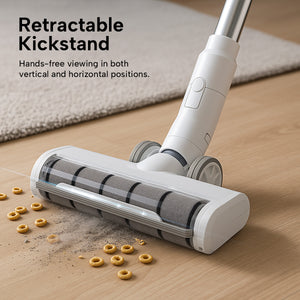Flossing: that dreaded chore that seems to be the bane of existence for many, including myself. I mean, who hasn't dreaded the nightly ritual of trying to wrangle a piece of string between every crevice of their teeth? But is flossing really all that bad? Let's delve into the myths and facts surrounding this dental practice.
The Bad Things About Flossing?
Ah, the dreaded question. Is there really anything bad about flossing? Well, some people claim it's time-consuming and tedious, while others argue that it can cause bleeding gums or discomfort. But let me tell you, those are just misconceptions.
Why Not to Floss Teeth?
Some folks might argue that they simply don't have time for flossing or that it's too much of a hassle. But trust me, neglecting to floss can lead to a host of dental issues down the road. Cavities, gum disease, and bad breath are just a few of the potential consequences of skipping this crucial step in oral hygiene.
How Do You Floss Without Damaging Your Teeth?
Flossing shouldn't be a painful experience. If you find yourself wincing or experiencing discomfort while flossing, chances are you're doing it wrong. The key is to be gentle yet thorough. Use a gentle sawing motion to slide the floss between your teeth, being careful not to snap it against your gums.
What Happens if You Floss Too Deep?
Flossing too aggressively or going too deep between your teeth can indeed cause irritation or even damage to your gums. That's why it's important to use a light touch and avoid forcing the floss where it doesn't want to go. If you're unsure about proper flossing technique, don't hesitate to ask your dentist for guidance.
Are There Any Dangers to Using a Water Flosser?
Ah, the water flosser – the modern alternative to traditional flossing. While water flossers can be a convenient option for some, they're not without their own set of potential risks. Some people report that water flossers can be messy or noisy, while others worry about the potential for bacteria to thrive in the water reservoir.
Can Water Flossers Damage Teeth?
When used correctly, water flossers are generally considered safe for most people. However, if used improperly or at too high of a pressure, they can potentially damage the gums or tooth enamel. It's important to follow the manufacturer's instructions and consult with your dentist if you have any concerns.
Do Dentists Recommend Water Flossers?
Many dentists do indeed recommend water flossers as a supplemental tool for oral hygiene. They can be especially beneficial for individuals with braces or other dental appliances that make traditional flossing difficult. However, it's essential to remember that water flossers should not replace traditional flossing altogether.
Are Water Flossers a Good Idea?
In short, yes! Water flossers can be a fantastic addition to your oral hygiene routine, especially if you struggle with traditional flossing or have specific dental needs. Just be sure to use them correctly and in conjunction with other dental hygiene practices for optimal results.

 Discounts are applied at checkout
Discounts are applied at checkout
































